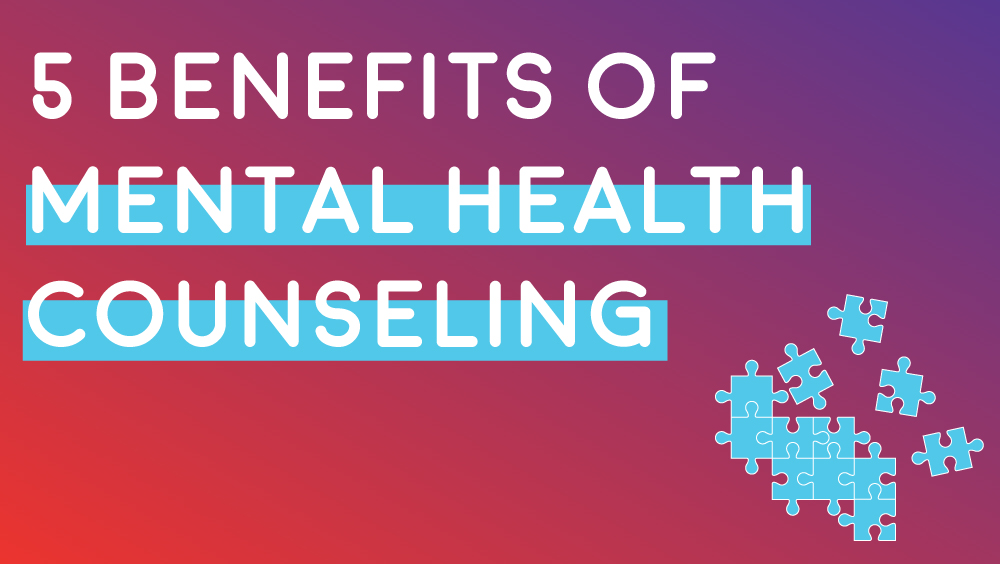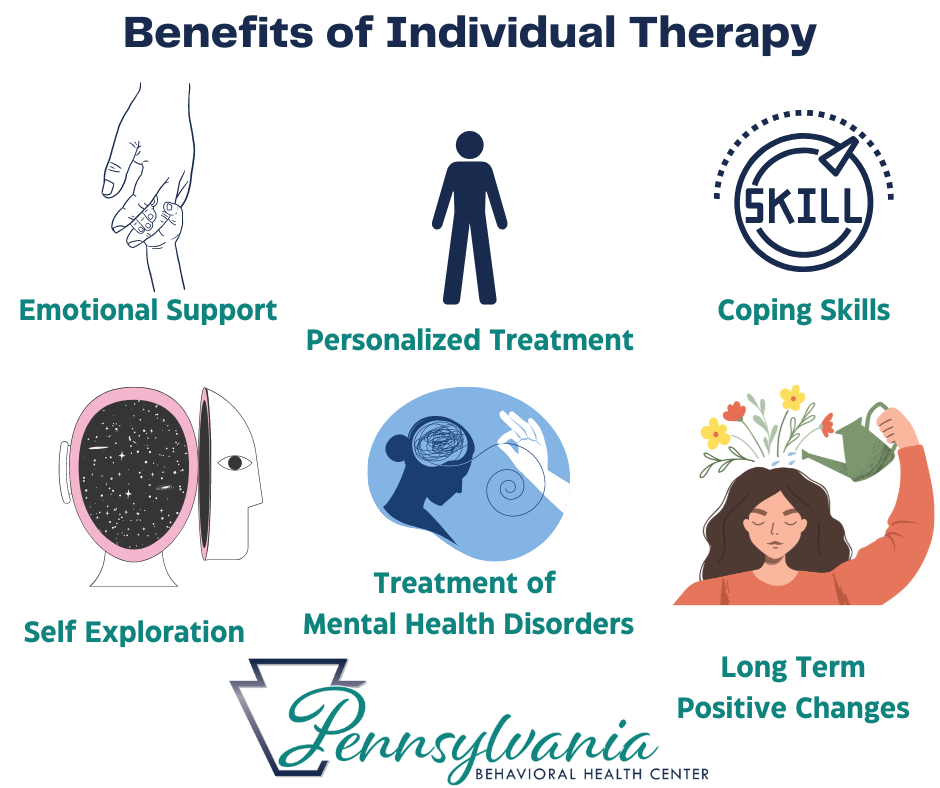The 9-Second Trick For Mental Health Counseling
The 9-Second Trick For Mental Health Counseling
Blog Article
A Biased View of Mental Health Counseling
Table of Contents4 Easy Facts About Mental Health Counseling ShownThe Only Guide for Mental Health CounselingThe Best Guide To Mental Health CounselingTop Guidelines Of Mental Health CounselingExamine This Report about Mental Health Counseling
With therapy, you can gain understanding right into your very own patterns of behavior and interaction, which can result in more satisfying and satisfying relationships with close friends, household, and romantic partners. What we think, we manifest. If you're eaten with negative feelings and negative ideas that are disrupting your life, treatment can aid., or there are various other unfavorable means you behave. Therapy can help you modify those behaviors that are having a negative effect on your globe and partnerships.

Obtaining therapy to deal with specific aspects of your life can aid you be much more effective in various other locations, including work.

Mental Health Counseling Can Be Fun For Everyone
There are also much more advantages of treatment than just the ones we have actually discussed., or develop connections (enchanting or those with family members or buddies) in a healthy way.
For the purpose of the present research study, regarded advantages and obstacles to mental health help-seeking are being explored. Previous study located that regarded barriers have a substantial effect on university students' wellness behavior selections (Von Ah, Ebert, Ngamvitroj, Park & Kang, 2003). Regarded advantages and barriers to help-seeking were particularly picked as a result of their impact on decision-making and inevitably action (Glanz, Rimer, & Su, 2005).
Today research seeks to check out whether preconception offers as a barrier to treatment amongst university student. Eisenberg et al. (2011) suggested that hesitation concerning therapy effectiveness is an additional obstacle to taking part in treatment. Research findings revealed that university student endorsed several barriers to getting involved in treatment. Mental Health Counseling. Among these were: (1) favoring to manage mental health issue themselves, (2) not having enough time to take part in treatment, (3) inquiries regarding whether mental health treatment works in remediating problems, (4) an idea that stress and anxiety is typical or the problem will certainly improve without treatment, (5) lack of cash, and (6) bother with what others would certainly believe if they discovered therapy engagement.
Staff in university mental wellness facilities might be viewed as hostile, and long wait times for services might be "repulsive" for trainees. Aspects assisting in much more positive perspectives are commonly at the contrary pole of those aspects determined as barriers.
Some Known Incorrect Statements About Mental Health Counseling
One in three (34.6%) reported surviving campus and one in 4 (23.3%) reported coping with moms and dads. Nearly half of pupils were included in school companies and 1 in 10 reported being in a society or sorority. Even more than one-third of students (38.1%) reported that they had a relative or pal with an identified mental health and wellness condition.

The Best Guide To Mental Health Counseling
Univariate F-tests recognized details subscale things that significantly differed. Females were less most likely than men to regard individuals who go to therapy as mentally weak, people that most likely to therapy as crazy, to really feel that people with psychological illness need to handle problems by themselves, that individuals that most likely to counseling as not able to solve problems, that individuals that most likely to therapy are lazy, and to really feel that individuals who most likely to counseling are various from regular people in an unfavorable way.
In a similar way, research results revealed that ladies were dramatically much less most likely than males to hold stigma-related attitudes. This is constant with previous research which also discovered that males hold higher degrees of viewed preconception than females (Chandra & Minkovitz, 2006). Based on research study searchings for, it is noticeable that males might be much less most likely than ladies to look for treatment due to low viewed obstacles in addition to high stigma-related attitudes.
The 10-Minute Rule for Mental Health Counseling
In enhancement, university wellness specialists might provide curricula targeting males with information on the benefits of psychological wellness treatment Discover More and the significance of seeking aid when needed. All techniques should be reviewed with future study to identify the effect on university students, especially males. In contrast to general populace researches which expose that females are a lot more likely to look for out mental health and wellness solutions compared to males (Haunstein et al., 2006; Mackenzie, Gekoski, & Knox, 2006), the here and now study located no substantial distinctions in the number of regarded barriers to help-seeking actions based on sex.
Researchers hypothesize that this is primarily because of traditional social standards and gender roles that defined males based on toughness and absence of psychological expression (Addis & Mahalik, 2003; Ang, Lim, Tan, & Yau, 2004; Mojtabai, 2007). Generally, there have actually been combined results amongst the college trainee population pertaining to sex distinctions (Rosenthal & Wilson, 2008). This finding was unanticipated and could highlight that those who had actually received therapy had a much better concept of wait times and various other "accessibility" obstacles that might make it challenging to begin therapy. Probably, participants that have actually gotten counseling view much more barriers than individuals that have actually not obtained counseling considering that seeking counseling services once again could entail fear of self-disclosing individual information to a brand-new counselor.
Report this page